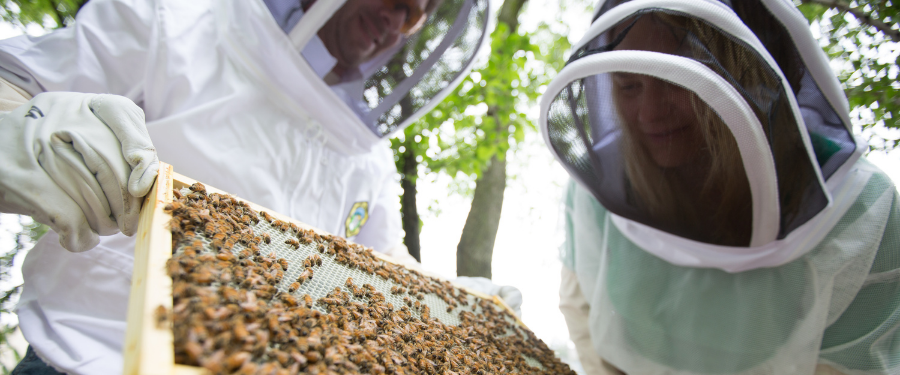
Looking for the chance to create meaningful change that will make our campus more sustainable? As a Lehigh Campus Sustainable Impact Fellow, your work can help Lehigh weather ongoing challenges posed by climate change and environmental degradation and position you to enter a workforce in which sustainability know-how and practical experience are valued like never before. “The trend we are seeing is that sustainability concerns are becoming more and more central to the strategy of business and government, and employers are increasingly emphasizing sustainability competencies, even for jobs that aren’t explicitly focused on sustainability,” said Katharine Targett Gross, Lehigh’s Sustainability Officer.
Applications for Lehigh’s first Campus Sustainable Impact Fellowship are currently being accepted on a rolling basis. Students with an interest in sustainability that goes beyond conventional coursework can tackle projects that address real-life issues such as the future of Lehigh transportation, tracking campus energy usage, smarter recycling bins, rainwater stewardship, and the climate impacts of our food systems. The CSIF requires a one-year commitment beginning with the Spring ’21 semester and continuing through the Fall ’21 semester. Members of the first cohort of the CSIF program will take six hours of credits (3 hours per semester) in Creative Inquiry (CINQ) coursework while advancing one of ten multi-year projects. Each of the ten projects lets participants develop and implement solutions for sustainability challenges right here on the Lehigh campus by working with experienced faculty and staff and highly motivated peers.
As the effects of climate change and population growth continue to drive the search for new ways of doing things in every aspect of our lives, the need for innovative thinkers and doers has never been greater. More than ever, employers in every arena are looking for employees who can help them achieve sustainable efficiencies that benefit both the planet and the bottom line.
Participation in the Campus Sustainable Impact Fellowship is open to anyone with a thirst for knowledge and an eagerness to contribute to society and make the world a freer, fairer, more sustainable place, says Khanjan Mehta, Vice Provost for Creative Inquiry and Director of the Mountaintop Initiative. Students from all majors will be considered. CSIF applicants “are highly self-selected individuals from every college, every discipline who have an interest and a passion for sustainability,” Mehta adds. “It’s about mindset more than specific skills.” Applicants are required to commit for the entire year. A select number of CSIFs will have the opportunity to participate in the Mountaintop Summer Experience to accelerate their project.
The Campus Sustainable Impact Fellowship joins and is modeled after two other Creative Inquiry programs: the Global Social Impact Fellowship and the Lehigh Valley Social Impact Fellowship, explains Bill Whitney, administrative director for the Office of Creative Inquiry. “With so much happening on campus, including the launch of the Sustainability Strategic Plan 2030 and the Climate Action Strategy, there are many opportunities to get students involved.” These programs create a structure around complex, multi-year projects that allows for applied, practical, hands-on student involvement and advancement.
Apply today for a rewarding and challenging, hands-on experience engaging with one of these projects:
2021 Campus Sustainable Impact Fellowship Projects
Thinking Outside the (Lunch) Box: Establishing a Food Carbon and Water Footprint
Close the Loop: Creating a More Sustainable Campus Food System at Lehigh
Mountain Hawk Prints: An Energy and Water Dashboard
PlasTech Ventures – Transforming Lehigh’s Plastic Recycling Stream by Producing Usable Products
Cut the Trash Talk: SMART-er Bins and Mapping Out a Zero-Waste Strategy for Campus Buildings
Thinking Holistically About Energy: WATT Can Lehigh Do?
Rain Harvesting: Exploring Ways to Harness the Resource
Reconnecting Our Constructed World to Nature: Prototyping Lehigh’s First Ever “Living Wall”
Waste Not, Want Not: Creating a Biodigester for Lehigh’s Campus
The Future of Lehigh Transportation: Thinking Innovatively and Creatively
